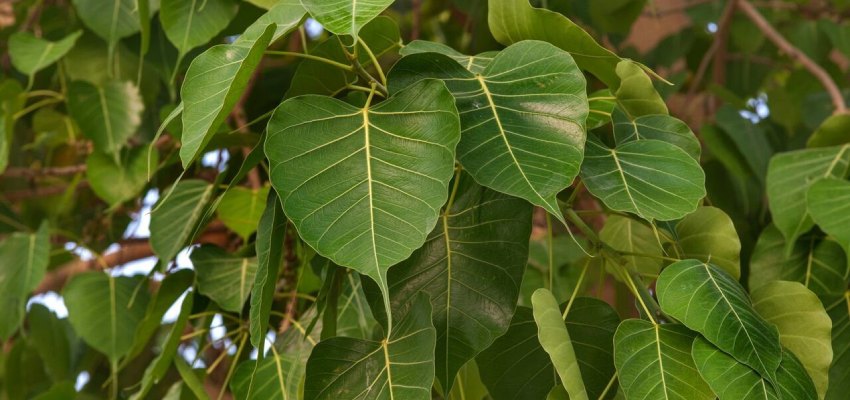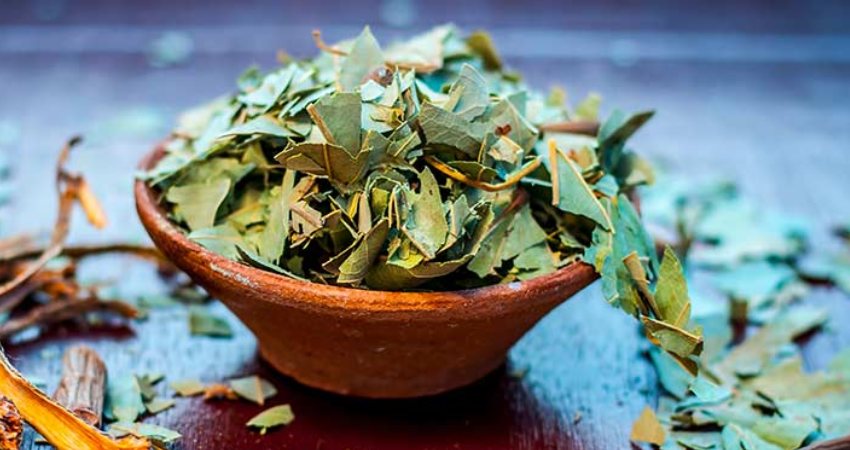A tree that has graced the Indian subcontinent for centuries, the Aswatha plant, better known as the Peepal tree, stands as a revered icon of cultural and spiritual significance.
Scientifically referred to as Ficus religiosa, this remarkable tree goes beyond its botanical label to play a pivotal role in India’s cultural tapestry. The Aswatha plant is not just a botanical wonder; it is a symbol of deep-rooted spirituality and tradition.
Aswatha Plant Uses
The Aswatha plant, also known as the Peepal tree, is incredibly versatile. Beyond its central role in religious and spiritual practices, it provides refuge to travellers, devotees, birds, and small creatures, maintaining the harmony of nature.

Aswatha plant use as its leaves, bearing the scientific name Ficus religiosa, have a history in traditional medicine for their healing qualities. They have been used to relieve various ailments, underscoring the tree’s positive impact on human well-being.
Have a look at agaru plant.
Aswatha Plant Benefits
The Aswatha plant holds a profound significance that reaches beyond its role as a source of oxygen and shade. It embodies the essence of continuity, symbolising the eternal cycle of life and death. Within Indian culture, it occupies a unique place, celebrated for its resilience, akin to the people it shelters.

Moreover, the Aswatha plant, known by the scientific name Ficus religiosa, Aswatha plants benefits is that it offers substantial ecological advantages, serving as a carbon sink and purifying the air we breathe.
Get information about – Brassica Campestris Benefits
The Aswatha Plant in Indian Culture
In the tapestry of Indian culture, the Aswatha plant, commonly known as the Peepal tree, weaves a rich and intricate story.
Scientifically labelled as Ficus religiosa, this tree goes far beyond its botanical identity; it embodies the soul of Indian spirituality and tradition. Its significance is deeply rooted in the cultural and religious realms of the subcontinent.
Explore more about – Changeri benefits
Cultural and Religious Importance
The Aswatha plant, Ficus religiosa, holds a revered place in the hearts of Indians. This tree transcends mere aesthetics; it represents the interconnectedness of all life. It’s a testimony to the timeless traditions that shape the cultural landscape of India.
Symbolism in Various Faiths
Across diverse faiths and belief systems, the Peepal tree carries a profound symbolism. For Hindus, it’s associated with Lord Vishnu and Lord Shiva. For Jains, it’s revered as a site of spiritual awakening.

This diversity of spiritual significance showcases the tree’s universal appeal in the Indian cultural context.
You can also look at amalaki tree.
Traditional Rituals and Ceremonies
The Aswatha plant, scientifically known as the Peepal tree, holds pivotal roles in various traditional rituals. People invoke blessings, protection, and peace through prayers, lamp lighting, and tying sacred threads around its trunk. Weddings, births, and life events find the Aswatha plant as a revered participant in the circle of life.
Scientific Name of Peepal Leaf (Ficus religiosa)
The Peepal leaf, scientifically classified as or scientific name of peepal leaf is Ficus religiosa, represents a remarkable botanical wonder with deep-rooted cultural and ecological significance.

Its scientific name offers a glimpse into the fascinating world of this tree and the role it plays in the environment.
Read about – Asana plant
Introducing Ficus religiosa
Ficus religiosa, the scientific name of the Peepal leaf, derives from the Latin word “religiosus,” which translates to “sacred” or “holy.” This nomenclature speaks to the profound reverence that the tree holds in various cultures.
As the species name implies, it is a tree with spiritual and religious importance, known for its role in providing shade and enlightenment.
Botanical Characteristics and Geographical Distribution
The Peepal tree, Ficus religiosa, is a large, deciduous tree with heart-shaped leaves. It’s recognized by its distinctive aerial roots that hang from the branches, touching the ground and sometimes taking root to create a network of tree trunks. It can be found in various regions of the Indian subcontinent and Southeast Asia.
Here is Ativisha plant.
Role in the Ecosystem and Unique Features
Ficus religiosa contributes significantly to the ecosystem. It is a vital source of food and shelter for various species, including birds, insects, and small mammals.

Its broad canopy provides shade, making it a popular resting place for travellers and devotees. Additionally, the unique feature of aerial roots, where branches become new trunks, is a remarkable adaptation that fosters the tree’s longevity and vitality.
Also read about – Bakula tree
Medicinal and Health Benefits
The Aswatha plant, also known as the Peepal tree, and its scientific name, Ficus religiosa, offer a treasure trove of medicinal and health benefits. From ancient traditional remedies to modern scientific research, this tree and its leaves have been celebrated for their therapeutic properties, promoting human well-being.
Role in Traditional Medicine and Scientific Research
Traditional Indian medicine, such as Ayurveda, has long recognized the medicinal value of the Aswatha plant. Ancient texts document the use of Peepal leaves in remedies for various ailments.

In modern times, scientific research has corroborated many of these traditional claims. The leaves have been studied for their antimicrobial, anti-inflammatory, and antioxidant properties, paving the way for their integration into contemporary healthcare practices.
You should also know – Solanum indicum
Remedies and Treatments
Peepal leaves have found their way into numerous remedies and treatments. For instance, they are used to make teas or concoctions that alleviate digestive issues.

In Ayurveda, Peepal leaf extracts are employed in various herbal formulations to manage respiratory problems and boost immunity. Furthermore, they can be applied topically to treat skin conditions.
Consider reading –